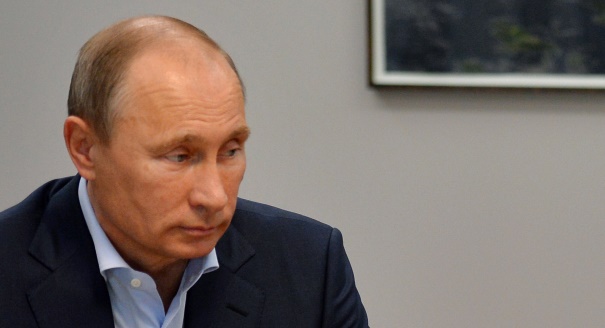In the last month, two news stories have emanated from Moscow. One is the fall-out from the xenophobic violence that broke out in October in the Biryulyovo district of Moscow.
The other is President Vladimir Putin’s efforts to rebuild a Eurasian Union beginning with a Customs Union. That process is especially intense ahead of the European Union’s Eastern Partnership summit in Vilnius.
Ultimately, foreign policy should reflect a country’s domestic priorities. In this case, however, the two are in outright conflict. The neighbors are getting mixed messages.
On the one hand, Putin is bidding to make Russia a place of attraction for its former Soviet neighbors, a country they would like to be partners with. On the other, he is presiding over a backlash against Russia’s neighbors and minorities.
A recent poll by the Levada Center recorded that 54 percent of respondents were in favor of restricting immigration for people from the Caucasus—a sharp jump from 30 percent only two years ago. The poll showed that the corresponding level of aggression toward people from China or Central Asia was only marginally less—around 45 percent.
So what message did it send to two prime candidates for the Eurasian Union, Kazakhstan and Kyrgyzstan, when on November 5, a migrant worker from their neighboring republic, Uzbekistan, was stabbed to death in St. Petersburg—reportedly by a gang of young men wearing a nationalist “uniform” of heavy military boots with white laces?
Or take Azerbaijan. The Biryulyovo riots were triggered by the killing on October 10 of a 25-year-old local resident Yegor Shcherbakov by an Azerbaijani national, Orhan Zeynalov.
Zeynalov was subsequently arrested and physically abused by police in front of Russian television cameras. That may have gone down well with a nationalist domestic constituency that Putin was trying to appease. But it caused outrage in Azerbaijan. Much of the work the Russian president did when he led a high-level delegation to Baku in August was undone. I can only imagine the reaction to the Zeynalov affair in the offices of Rosneft, which has been trying to strike a gas deal with the Azerbaijan state energy company Socar.
Putin himself has always flirted with the new Russian nationalism, never embracing it outright. Now he faces a dilemma as the phenomenon he helped create weakens the basis of his prestige foreign policy project.





